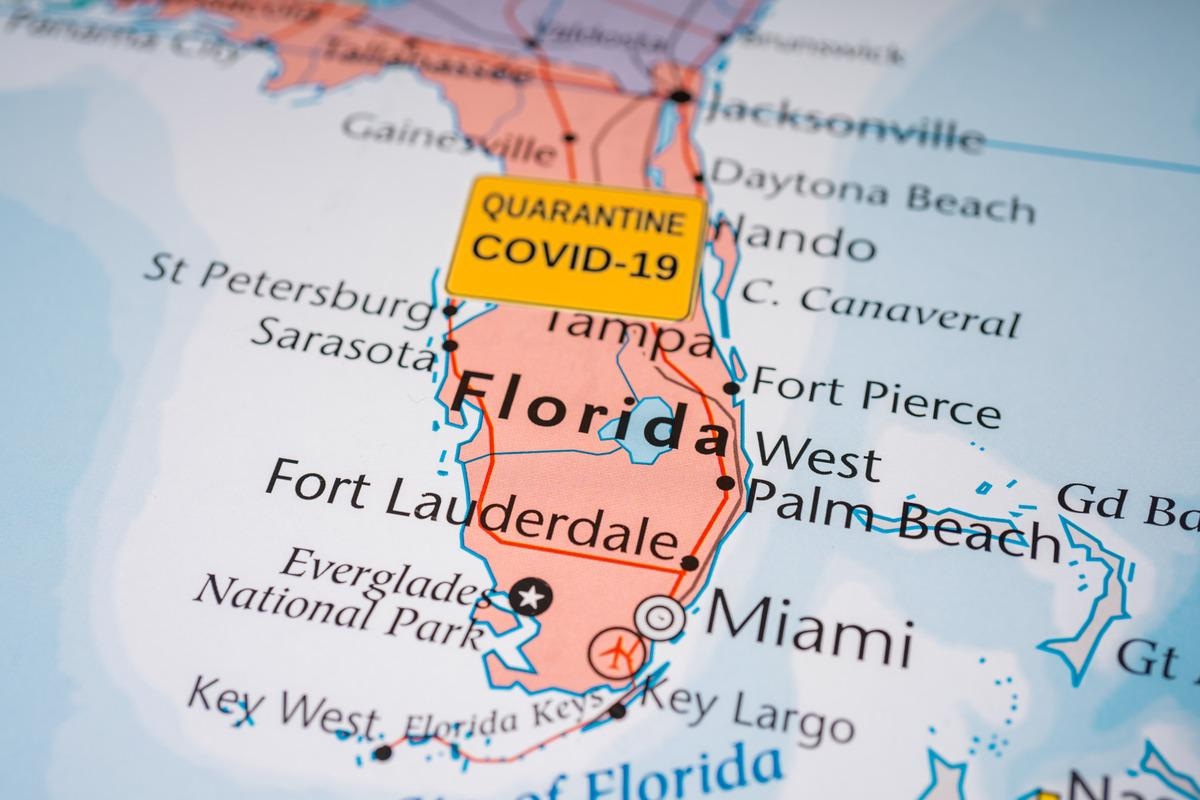New variants of concern (VOCs) of the severe acute respiratory syndrome coronavirus 2 (SARS-CoV-2) are continually emerging and spreading on a global scale. Therefore, there is a need for increased SARS-CoV-2 genomic surveillance for different variants at the local, national, and international levels.
A new study describes the introduction and spread of a SARS-CoV-2 lineage, A.2.5 in Florida using samples from the Florida Department of Health (FDOH) Bureau of Public Health Laboratories (BPHL). BPHL performs whole-genome sequencing for surveillance of SARS-CoV-2 isolates in Florida from clinical samples collected from county health departments and hospitals throughout the state.

Study: Introduction and community transmission of SARS-CoV-2 lineage A.2.5 in Florida with novel spike INDELS. Image Credit: Alexander Lukatskiy/Shutterstock

 *Important notice: medRxiv publishes preliminary scientific reports that are not peer-reviewed and, therefore, should not be regarded as conclusive, guide clinical practice/health-related behavior, or treated as established information.
*Important notice: medRxiv publishes preliminary scientific reports that are not peer-reviewed and, therefore, should not be regarded as conclusive, guide clinical practice/health-related behavior, or treated as established information.
A preprint version of the study, which is yet to undergo peer review, is available on the medRxiv* server.
Genomic surveillance
SARS-CoV-2 surveillance involves the identification and tracking of lineages that contain mutations and/or insertions/deletions (INDELS) within the SARS-CoV-2 spike protein. It is achieved by tiled-amplicon whole-genome sequencing (WGS) or targeted enrichment WGS.
The Centers for Disease Control and Prevention (CDC) has published a United States (U.S.) government interagency variant classification list. According to this, the variants are classified as - variant of interest (VOI), variant of concern (VOC) and variant of high consequence (VOHC). As of June 4, 2021, the U.S. majorly has VOCs and VOIs. Florida had more than 80% of VOCs among all lineages.
BPHL has sequenced coronavirus disease 2019 (COVID-19)-positive samples collected from patients throughout the state since March 4, 2020. BPHL actively surveils variants of public health interest in Florida. It monitors changes in lineage frequencies within the state and the emergence of novel spike protein mutations which may warrant further research.
Lineage A.2.4
In January 2021, BPHL detected the lineage A.2.4 among patients in an outbreak at a south Florida healthcare facility. Shortly, additional A.2.4 cases were detected during routine surveillance from patients geographically dispersed across the state. The A.2.4 lineage first emerged in Panama. It comprised a distinct clade that contained mainly U.S. samples.
This separate clade was then reclassified as lineage A.2.5, a Central American/U.S. lineage. SARS-CoV-2 A.2.5 isolates from Florida were first detected among a healthcare facility outbreak involving both patients and staff. The A.2.5 isolates contained several spike mutations which warranted further investigation. The spike protein of A.2.5 lineage harbors a CDC-designated substitution of therapeutic concern (L452R), the independent emergence of substitution D614G in an A lineage, and two novel spike INDELs - LGV141-143del and ins215AGY. These were never detected in Florida nor reported in any of the SARS-CoV-2 studies. Moreover, the implications of these mutations on the immune system are unknown.
Lineage A.2.5
As of March 29, 2021, the global A.2.5 lineage had 220 isolates with complete genomes from 13 countries. The earliest A.2.5 isolate was collected in Ecuador on December 1, 2020. Of these 220 isolates, 33 were from Florida. The first clinical sample from Florida was collected on January 16, 2021. The spike protein gene of this lineage has the most common spike protein mutations including S:D614G (98.64%), S:L452R (97.27%), S:G142- (97.27%), S:V143- (97.27%), S:L141- (95.45%), S:D215A (76.82%), and S:ins215AGY (76.82%). Samples from Florida had similar mutations frequencies S:D614G (96.97%), S:L452R (96.97%), S:G142- (100%), S:V143- (100%), S:L141- (100%), S:D215A (87.88%), and S:ins215AGY (87.88%).
A time-scaled maximum clade credibility phylogeny indicated multiple introductions of this lineage. There were at least eight separate introductions of A.2.5 in Florida. The time of introduction of a monophyletic Florida clade was determined to be December 2020.
The three-dimensional structure of the mutant spike protein was modeled using computational methods to locate the INDELS within the protein structure. Within the primary Florida clade, all samples had spike L141del, G142del, V143del, D215A, ins215AGY, L452R, and D614G. However, three out of 17 isolates had missing and low coverage at spike 215. The deletions of Spike 141- 143 and the insertion at 215 were most notable. The spike protein INDELS reside in the N-terminal domain. This is a region associated with antibody neutralization.
Implications
Several variants have mutations in the N-terminal domain. This region is under selective pressure for the emerging variants to escape neutralization by antibodies. Additional mutations can cause increased transmissibility. The A.2.5 lineage does not appear to have increased transmissibility due to the low frequency of the lineage in the U.S. and globally. However, A.2.5 and its emerging sublineages should continue to be monitored as novel mutations could arise that may increase transmissibility.
Continued genomic surveillance and contact tracing are critical for informing a public health response to reduce or eliminate the transmission of SARS-CoV-2 variants.

 *Important notice: medRxiv publishes preliminary scientific reports that are not peer-reviewed and, therefore, should not be regarded as conclusive, guide clinical practice/health-related behavior, or treated as established information.
*Important notice: medRxiv publishes preliminary scientific reports that are not peer-reviewed and, therefore, should not be regarded as conclusive, guide clinical practice/health-related behavior, or treated as established information.